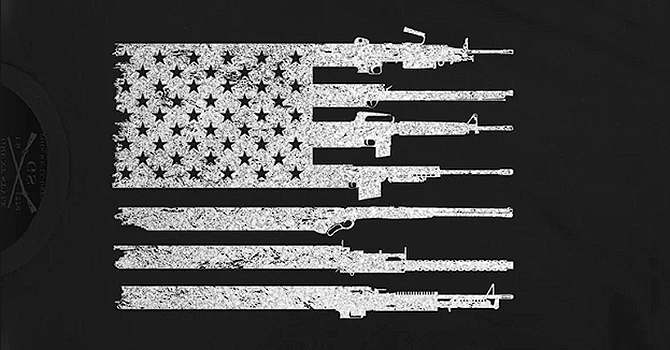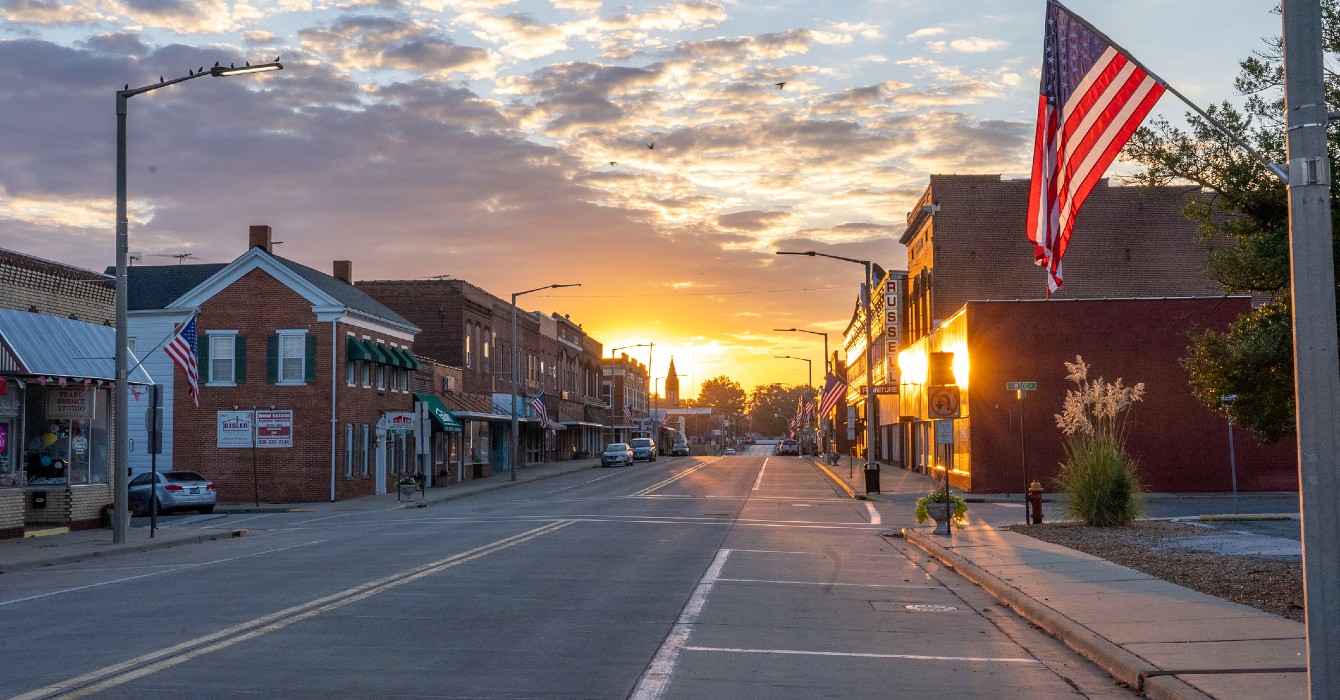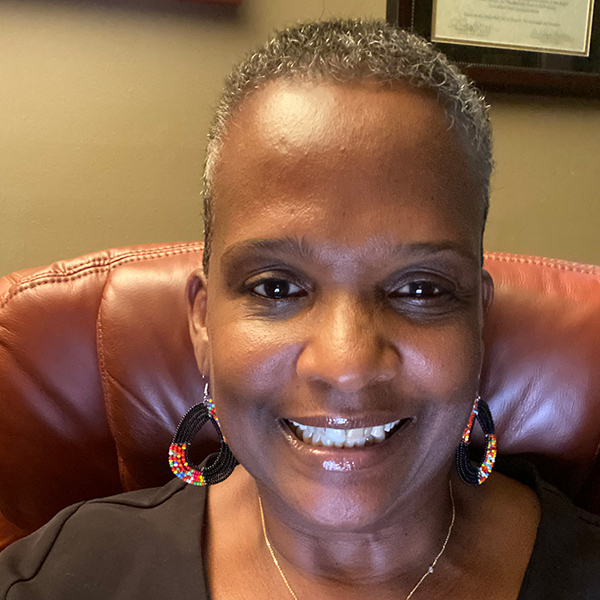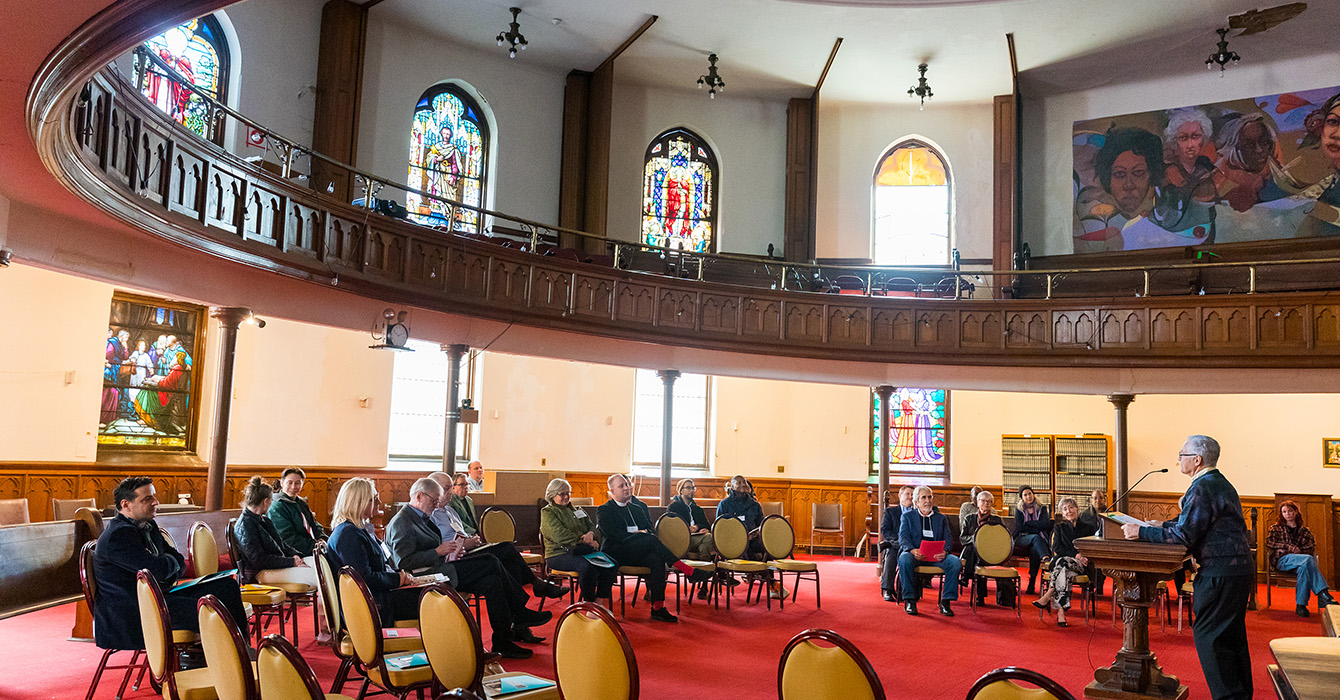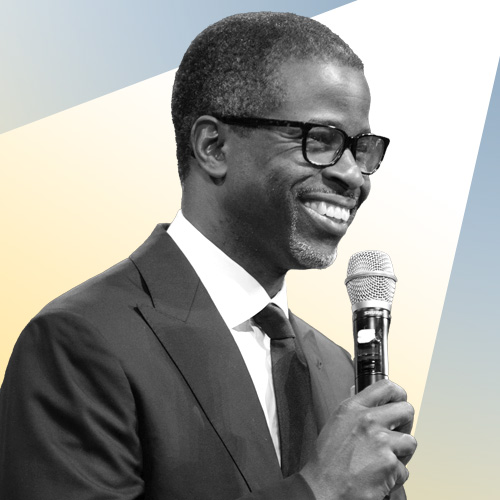From 1925 to 1941, African-American clergymen -- many from the rural South -- became nationally known preachers through a little-known partnership with the major record labels of the day.
In his new book, “Preaching on Wax: The Phonograph and the Shaping of Modern African American Religion,” Lerone A. Martin tells the stories of the Rev. James M. Gates, “Black Billy Sunday” and other preachers of the era, who shared the gospel through the popular media of the day.
They rode the wave of the Great Migration, selling their records to the millions of African-Americans who had moved to the cities but missed the chanted folk sermons and call-and-response style of the rural churches in which they had grown up.
“One of the major concerns that faith communities have is to make sure that as African-Americans move into cities, they aren’t losing their faith,” Martin said. The records helped combat that trend, because “people are able to go out and buy these sermons and hear preaching in a way that they’re accustomed to.”
Martin, an assistant professor of religion and politics in the John C. Danforth Center on Religion and Politics at Washington University in St. Louis, spoke with Faith & Leadership about his research uncovering this chapter in American religious history. The following is an edited transcript.
Q: What is the history of “preaching on wax” by African-Americans?
The first African-American preacher recorded in January of 1925 for Columbia Records. The sermon was called "As An Eagle Stirreth Up Her Nest." And this came about for two reasons.
The phonograph industry finally began to reach out to African-Americans in 1920 by recording jazz and blues. Prior to this, the phonograph industry for the most part ignored African-American consumers and artists.
In the 1920s, they began to record jazz and blues by African-American artists for African-American consumers, for the most part because they needed new markets when radio began to take off.

What we begin to see is African-American faith communities deeply concerned about this new form of entertainment.
Some preachers try various techniques to stave this off. Some begin to advocate in newspapers for churches to have alternative forms of amusement, so “sober dances” or “sane amusements” become a buzzword.
Other ministers respond to this new form of entertainment by joining the phonograph industry to compete with the likes of Bessie Smith, Louis Armstrong, Ma Rainey, etc. That’s where we see that it takes off.
Q: Were white preachers also recording at this time?
White preachers were recording. Aimee Semple McPherson recorded some of her sermons. Charles Fuller recorded his. Both of these folks begin when radio takes off as the new technology. These sorts of preachers begin to concentrate most of their efforts on radio.
Q: Was radio available to the black preachers?
In the 1930s, African-American preachers begin to get on radio, but very, very slowly. And part of it is because some advertisers for radio stations are concerned about having their products associated with African-Americans. And so there’s difficulty, for some, getting African-Americans on radio for financial reasons.
In Northern cities, about 50 percent of black households have radios in the 1930s, compared with about 80 percent of white households. But when you look at Southern cities -- Atlanta, Memphis, New Orleans -- in the 1930s, they’re hovering around about 5 to 7 percent of radio ownership. So at that time, radio just isn’t very popular in black homes. In terms of everyday black life, radio is very limited until after the war.
Q: Clearly, there are parallels to the present day, with the same kind of tension for church leaders: Do you embrace popular culture, do you subvert it, or do you try to fight it?
So which path do we choose? Yeah, do we just copy it and make sanctified versions of popular entertainment? So, for example, some church groups just decided to ignore the rise of reality shows that we see on television, while you also have “Preachers of L.A.,” which is a reality show pretty much based on the “Real Housewives” franchise. You have Christian dating shows.
Phonograph preachers saw themselves as competing with the likes of Ma Rainey and Bessie Smith. They saw themselves as “descending” into the marketplace as a way to combat what they saw as an evil influence of the market upon Christians.
Q: In the book, you tell the story of Calvin Dixon, who takes the name “Black Billy Sunday,” and his recording session. So talk a little bit about that.
Black Billy Sunday was a well-known evangelist along the East Coast. He had a penchant, it seems, to try to knock out popular forms of entertainment.
When he’s in Norfolk, Virginia, the proprietors of local amusements are upset. They go to the city fathers and say, “We’ve got to get this revivalist out of town; he’s really hurting our business.”
Eventually, a local Columbia Records talent scout notices him and decides, “If this guy’s so popular for selling out revivals, perhaps we can put him on record and he would also sell.”
So Sunday travels to New York in January of 1925 to record, and it appears from the studio log that he records right after Bessie Smith and Louis Armstrong record one of their most famous songs, “St. Louis Blues.”
And it’s a fascinating image, if we can imagine these famous blues singers singing and doing their thing, and then right after that, Columbia Records records this preacher.
Q: So you can imagine them practically passing each other in the hallway?
Right. And perhaps that influenced the sermon, because his sermon is all about African-Americans moving to the urban areas, and he’s telling people not to be distracted by the money, the diamonds, not to engage in the things that Bessie Smith alludes to in the song she recorded that day -- “diamond rings,” “store-bought hair.”
So he doesn’t actually name her by name, but it certainly seems that he’s alluding to some of the things that she has been singing about in the studio prior to his arrival.
Q: What connection did this trend of preachers recording on records have to the Great Migration?
There’s a great deal of change that results as African-Americans in large numbers are migrating to cities. As these large migrations happen, the people change, and the people change the cities.
One of the major concerns that faith communities have is to make sure that as African-Americans move into cities, they aren’t losing their faith.
There are concerns from preachers about people coming from rural America, where there’s not a whole lot to do and the church is a focal point of the community, to urban America, where there are all types of amusement and things to do that folks in rural America are not accustomed to, for example, bars and YMCAs and amusement parks.
And so amusement becomes a battleground as it relates to spirituality and racial progress.
Q: Did people rush out and buy sermons that scolded them for wanting to have fun?
Black Billy Sunday, the first preacher who starts it off -- his sermons are lecture-style, very didactic. They sell OK, but not very well.
The sermons don’t take off and start selling until the preachers begin to re-create a black evangelical worship service in the studio pulpit. So they bring members of their congregations along with them to engage in call and response. You hear people in the background saying, “amen,” “all right now,” “preach,” “that’s right,” “hallelujah.”
And they also preach their sermons in a very chanted way. So the sermons become popular when preachers begin to mimic an evangelical worship service that’s more reminiscent of rural America, which is the interesting irony.
Q: Was it because of nostalgia for the folks back home?
It is a form of nostalgia, but there are also several testimonies that talk about rural migrants coming to the city and feeling -- one study called it “spiritually shipwrecked,” as a result of not finding a church like the church from back home.
Some of the migrants come and they experience worship they feel is not welcoming. It’s high-class. Classical music as a form of displaying racial progress -- Handel’s “Messiah,” for example -- but nothing of down-home music and down-home preaching.
And so these sermons fill a void. People are able to go out and buy these sermons and hear preaching in a way that they’re accustomed to.
Q: And another wonderful story in the book is about Martin Luther King’s father moving to the big city. Tell that story.
I really was fascinated reading Martin Luther King Sr.’s autobiography, the way he described his experience. He says that he migrated to Atlanta from rural Georgia in 1913, and he believed that he was educated. He’s educated in a rural school, he comes to Atlanta, to the big city, and he is just utterly embarrassed, he says, when he goes to certain parts of the city and people hear him talk with his rural words, his cadence.
And the first time he preaches, he goes to this Methodist church, which is more of a middle-class African-American, established church, and he’s preaching, and he hears the congregation and the choir -- they’re laughing at him. They’re snickering at him. Some are ashamed and turning up their noses at him, because he represents a rural past that many see as reminiscent or a relic of slavery.
He’s embarrassed; he’s really concerned about whether or not he should go into the ministry. He ends up marrying a preacher’s daughter, and she convinces him that he needs to get educated, and he goes to Morehouse, gets an education and becomes a religious leader of Atlanta.
Q: The Rev. James M. Gates, the most popular phonograph preacher, takes another tack, however. What’s his story?
Rev. Gates was born in Hogansville, Georgia, in the late 19th century and migrates to Atlanta in 1913, the same year that Dr. King’s father comes to Atlanta.
Unlike Rev. King, instead of trying to rid himself of this rural background, he relishes it, and starts pastoring in a very small congregation that seems as if it started in someone’s backyard.
Eventually, because of his popularity, they build a church building with stained-glass windows, which is a really big deal. It has indoor plumbing, which is really modern technology.
It seems as if there’s a local talent scout who goes to visit his church. He hears Gates and signs him as a free agent.
So Rev. Gates, unlike other artists, does not sign exclusively to a record label, but he signs with an agent. Part of his popularity is the sheer volume, that everybody wants to get a piece of him, and he records for countless labels and for whatever he can get them to pay him.
He records his sermons beginning in 1926 and records his last sermon, "Hitler and Hell," in 1941. There are countless reports in the African-American newspapers that talk about his popularity, his celebrity -- and also his penchant for nice cars.
This would’ve been one way for him to display his wealth as an African-American. He might not be able to buy in certain neighborhoods, maybe not able to go into certain stores because of Jim Crow, but one way he could display his wealth and celebrity would be to buy fancy automobiles.
And one journalist jokingly writes that Rev. Gates every Christmas must ask Santa to bring him a paid-in-full car note for his stocking, because Rev. Gates always seems to have a new car.
Q: Sometimes one associates that narrative with somebody’s downfall. Did he succumb to the lure of the fancy life that he was living?
I think he did. His sermons -- he preaches one sermon that’s a very strong sermon about race, and he uses the text from the Bible when Jesus talks about, to the Pharisees, “You swallow …” What is it? “You strain out a gnat but swallow a camel!” And he uses that verse to talk about Jim Crow.
So he preaches that sermon, but toward the end of his career, he doesn’t touch those subjects anymore, particularly after 1930. His sermons become a little more concerned with entertainment; he’s trying to compete with the vaudeville radio, so he has even some Christian skits on some of his recordings.
But celebrity did change him, and he eventually leaves the church that he helped to grow and ends up going to pastor a middle-class church made up of black business owners. So he certainly does change; he certainly does change in a way, I think, to try to reflect his newfound respectability.
Q: What effect did these popular records have on religious life?
First is the idea of preacher as celebrity -- preachers being known for selling a particular product in the marketplace. It becomes a style of leadership, and it becomes a way to authenticate the gospel that one preaches, because one has made it in corporate America. I think that it begins to become a style of leadership or a form of leadership.
It also introduces the market into religious life in a way that says that the market has to be considered, unfortunately, when one is thinking about selling one’s religious product. So it’s not just about the gospel, but it’s also about how the market will receive one’s message. So it has to be shaped and fashioned in a particular way that’s popular.
It brings the market into religious life in a new way, because this is not just a prayer hankie, this is not just a Bible, but this is the actual sermon. And so preachers are trying to think about how they can preach the gospel, the actual sermon, in a way that’s favorable to the market.
Q: And does it change the sermon?
Definitely. It does shape the sermon, without a doubt. Rev. Gates preaches a sermon against chain stores. He’s complaining about the rise of A&P and Montgomery Ward and J.C. Penney. It’s 1930, and he wants to blame the chain stores for the collapse of Wall Street, the Great Depression. He has a sermon that he records, and the record label refuses to issue it. As you can imagine, it’s because many of his sermons are sold in these very stores.
So recording these sermons amplifies preachers and amplifies their visibility, but it also attenuates or shapes the tone of their sermons, because there are certain things you’re not going to be able to preach about if you want to continue being popular.






